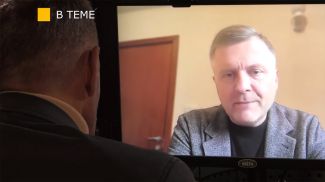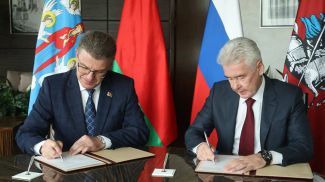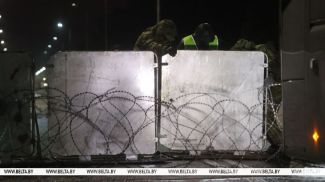MINSK, 10 February (BelTA) – Polish citizen Emil Czeczko has told journalists that he wants to tell the public about the atrocious facts of genocide committed on the Poland-Belarus border, BelTA has learned.
“I am here to talk about the horrors of the genocide on the Poland-Belarus border. We should pay tribute to the memory of the people who died,” Emil Czeczko said.
The center “Sistemnaya Pravozaschita” [“Systemic Human Rights Protection”] is holding a press conference of Polish serviceman Emil Czeczko.
Emil Czeczko will show on the map the places of mass execution (burials) and reveal the details of the execution process: how soldiers were selected and assigned to the border guards, how migrants were transported to the place of execution, who gave criminal orders, how Polish soldiers carried out executions under the threat of death by the so-called border guards, how he escaped and why he fled to Belarus.
A Belarusian border patrol detained Polish national Emil Czeczko, born in 1996, near the Belarus-Poland border on 16 December. He was a soldier of the 11th Masurian Artillery Regiment of the 16th Pomeranian Mechanized Division named after King Casimir, which units had been redeployed to guard a section of the Poland-Belarus border during the state of emergency imposed in Poland's territory near the Belarusian border.
He requested political asylum in Belarus “due to his disagreement with Poland's handling of the migrant crisis and the inhumane treatment of refugees”. Emil Czeczko is currently a witness in a criminal case into the death of migrants on the Belarus-Poland border initiated by the Investigative Committee of Belarus. The Polish citizen is in the process of obtaining refugee status in Belarus with the help of the human rights center.
Emil Czeczko filed a lawsuit “On genocide and crimes against humanity on the territory of Poland” to the prosecutor of the International Criminal Court in the Hague (the lawsuit was accepted for consideration). According to him, he personally (under the threat of death from the Polish border guards) took part in the execution of more than 200 refugees, including women and children.













